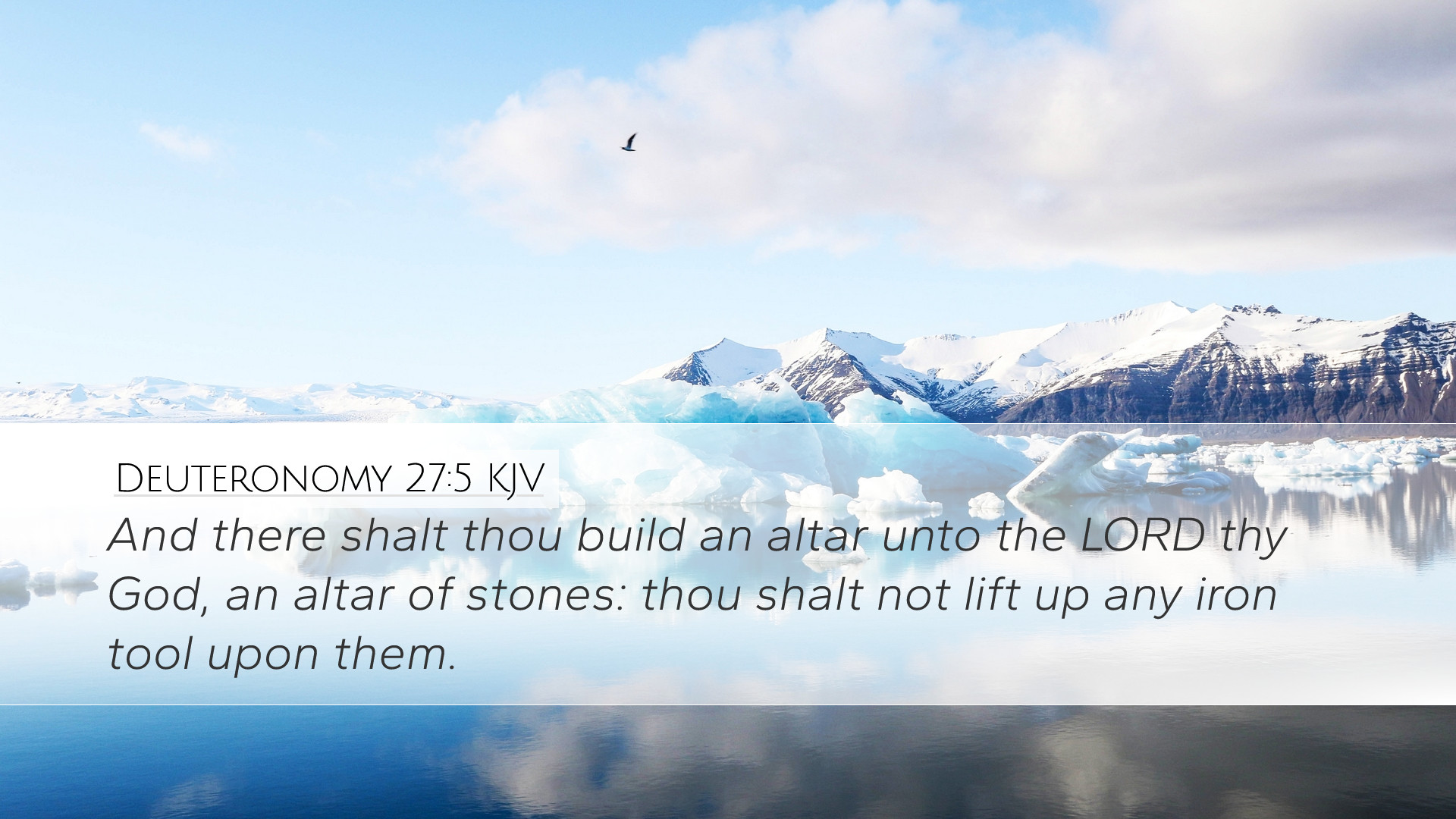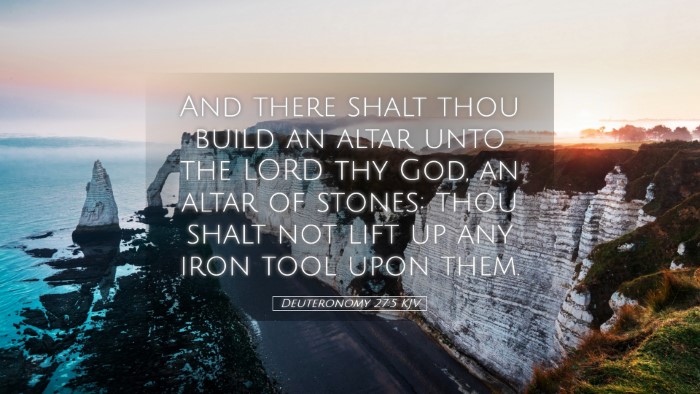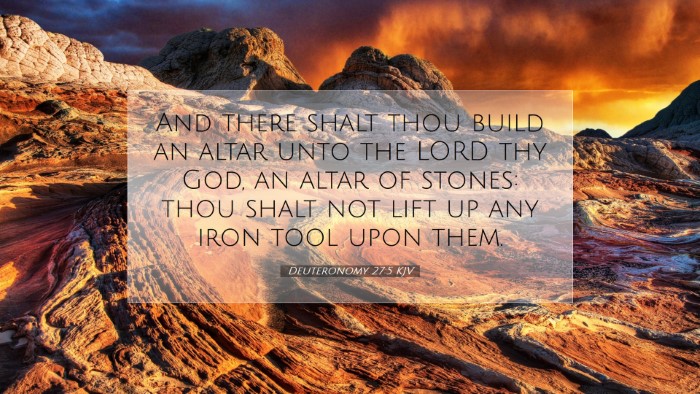Commentary on Deuteronomy 27:5
Deuteronomy 27:5 states: "And there shalt thou build an altar unto the Lord thy God, an altar of stones: thou shalt not lift up any iron tool upon them." This verse, nestled within the instructions given to the Israelites regarding the covenant renewal rituals, serves as a pivotal point in understanding the significance of worship and the nature of the sacrificial system established by God.
Historical Context
At this juncture in Deuteronomy, the Israelites are on the cusp of entering the Promised Land, and Moses lays down further laws and rituals essential for maintaining their covenant relationship with God. The building of an altar signifies not merely a place for sacrifices but represents the establishment of a continual consciousness of God among His people.
Significance of the Altar
As per Matthew Henry's commentary, the altar mentioned is a physical manifestation of God's presence among His people. It symbolizes the need for atonement and reconciliation with God. The directive to use uncut stones emphasizes purity and the organic nature of divine worship.
Albert Barnes elaborates that the altar, built of stones untouched by iron tools, symbolizes a form of natural worship that is untainted by human effort or craftsmanship. It stands in contrast to the pagan practices of the surrounding nations which often involved elaborate craftsmanship and idolatry.
According to Adam Clarke, the altar’s construction with whole stones underscores the ideal of authenticity in worship and devotion. There is a reactive notion against any form of human modification—a reminder that God desires services expressed in their natural form, rooted in humility and sincerity.
The Usage of Stones
The choice of stone serves as a powerful symbol throughout Scripture. Stones in the Bible often indicate permanence, strength, and God’s faithfulness. In the case of Deuteronomy 27:5, the stones become a reminder of the Israelites’ covenant with God, marking their identity and solidarity as a community of faith.
- Symbolism of Stones: The stones are reminders of God's promise and commitment to Israel.
- Natural Elements: The use of stones reflects the notion that creation itself is sufficient in honoring the Creator. God’s creation should be the agent of worship.
The Prohibition of Iron Tools
The injunction against employing iron tools in the altar's construction signifies God’s desire for unblemished worship. As stated by Henry, iron in the text may symbolize human effort and weapons of war. The prohibition suggests that worship must arise from a place of peace and authenticity, not conflict or personal pride.
Barnes further notes that by avoiding the use of metal tools, God intended to preserve the altar's sanctity. The raw, unrefined stones used in the altar signify the need for humility in worship, allowing the worshippers to recognize their limitations before a holy God.
Applications for Believers
The principles derived from Deuteronomy 27:5 bear profound implications for contemporary believers. The call to build an altar of uncut stones calls for an authentic approach to worship, one that acknowledges our unrefined state before God:
- Authenticity in Worship: Just as the altar was constructed with natural stones, believers are encouraged to come before God just as they are, without pretense.
- Recognizing God’s Holiness: The construction of the altar serves as a reminder of God’s holiness and the need for proper reverence in our expressions of worship and service.
- Community Worship: The collective nature of building an altar reflects the communal aspect of faith—worship is not a solitary endeavor but involves the community of believers coming together in reverence for God.
Theological Implications
The theological reflections stemming from this verse raise questions about how modern believers approach worship and the significance of preserving sacred practices in a contemporary context.
The emphasis that God placed on the altar's construction methodology points towards a broader understanding of how believers might orient their lives in a way that honors divine directives while maintaining personal integrity and authenticity.
Conclusion
In conclusion, Deuteronomy 27:5 invites both pastors and scholars alike to delve deeper into the heart of worship and its implications for living in covenant with God. The instruction to build an altar from uncut stones, untouched by human tools, symbolizes a pure, sacred approach to the divine, urging contemporary faith communities to consider their practices in light of authenticity, community, and reverence for the holiness of God.


